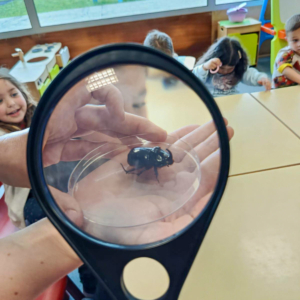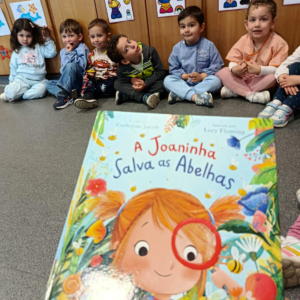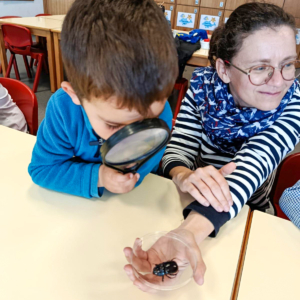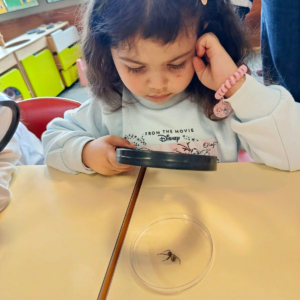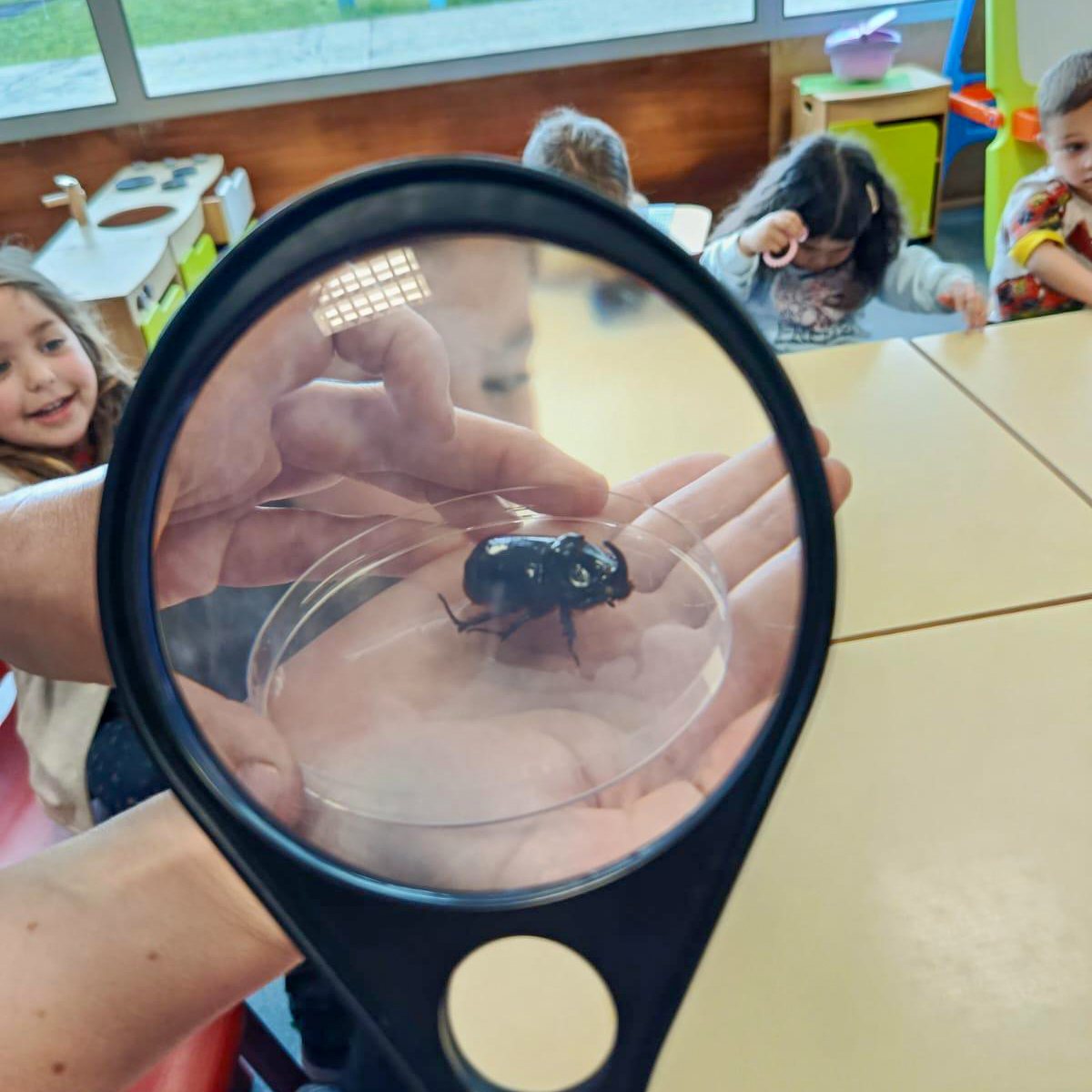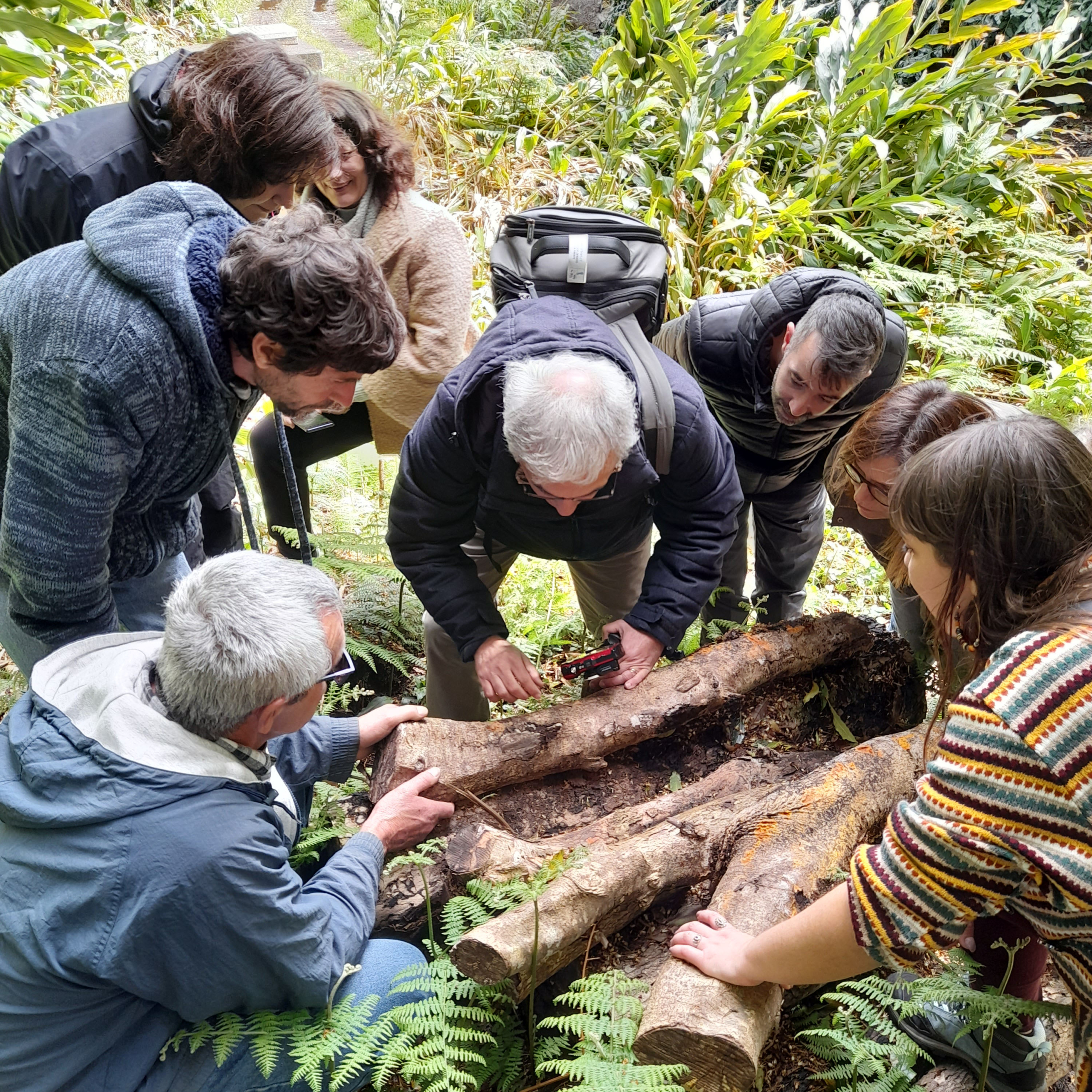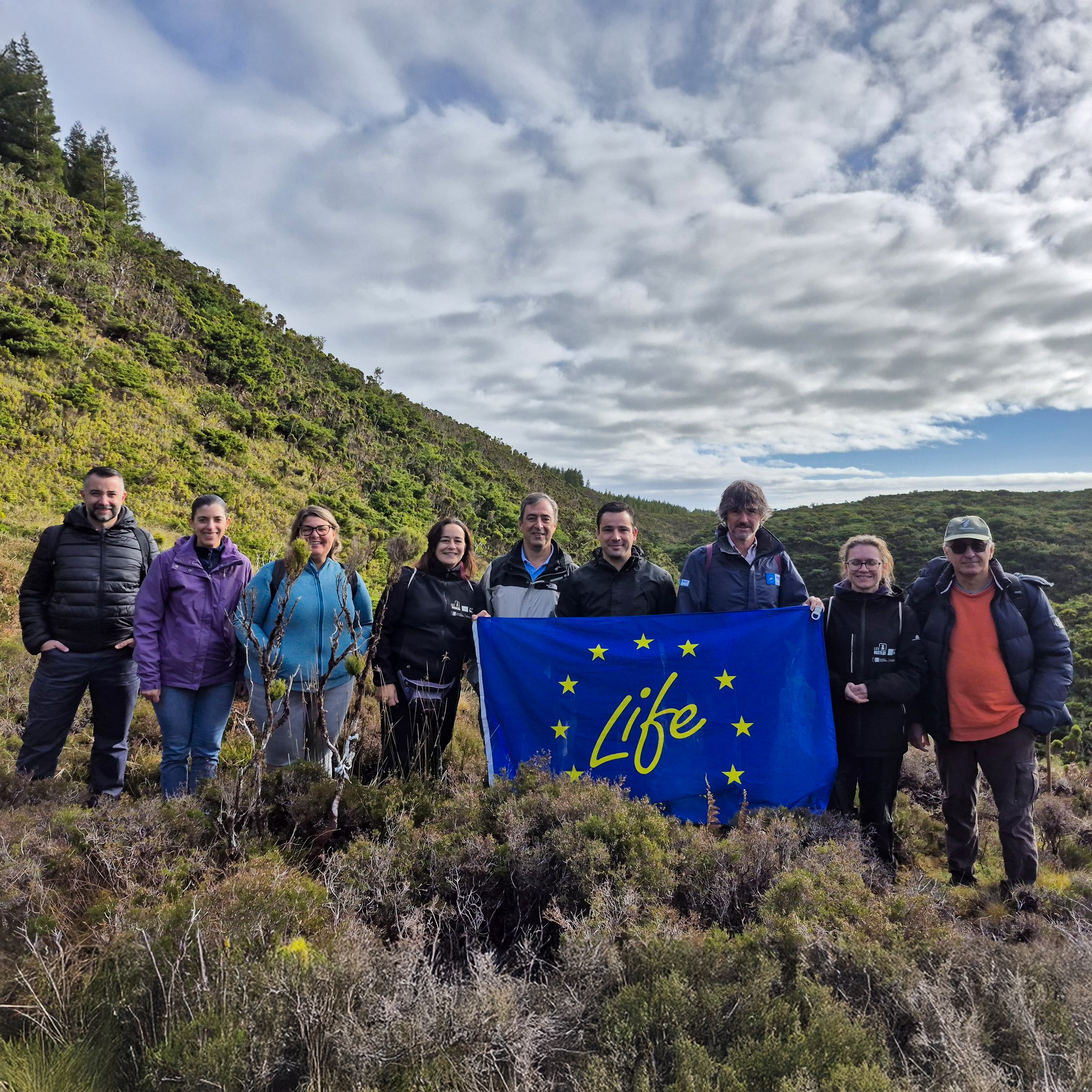World Bee Day was established by the United Nations in 2017 and is celebrated annually on 20 May. Its main objective is to raise awareness of the essential role of bees and other pollinating insects in human and planetary health.
From bees, butterflies and beetles to birds and bats, pollinators are fundamental to agrifood systems, ensuring the reproduction of crops and wild plants.
Did you know that:
- around 10% of the total economic value of agricultural production destined for human food depends on pollination by insects;
- ¾ of our food depends, in part, on the action of pollinators;
- 90% of the world’s wild plants (around 308,000 species) depend on pollinators for their reproduction;
- there are over 200,000 species of pollinating animals, around 20,000 of which are bee species.
Coordinated by the Regional Secretariat for the Environment and Climate Action, the LIFE BEETLES project marked this day with a preschool class from the EBS São Roque do Pico, organising the activity’ Insects under the magnifying glass’. After reading a story in which the little girl Joaninha saves the bees and all the insects in her neighbourhood, the participants could observe some of these insects, and more, under a magnifying glass!
